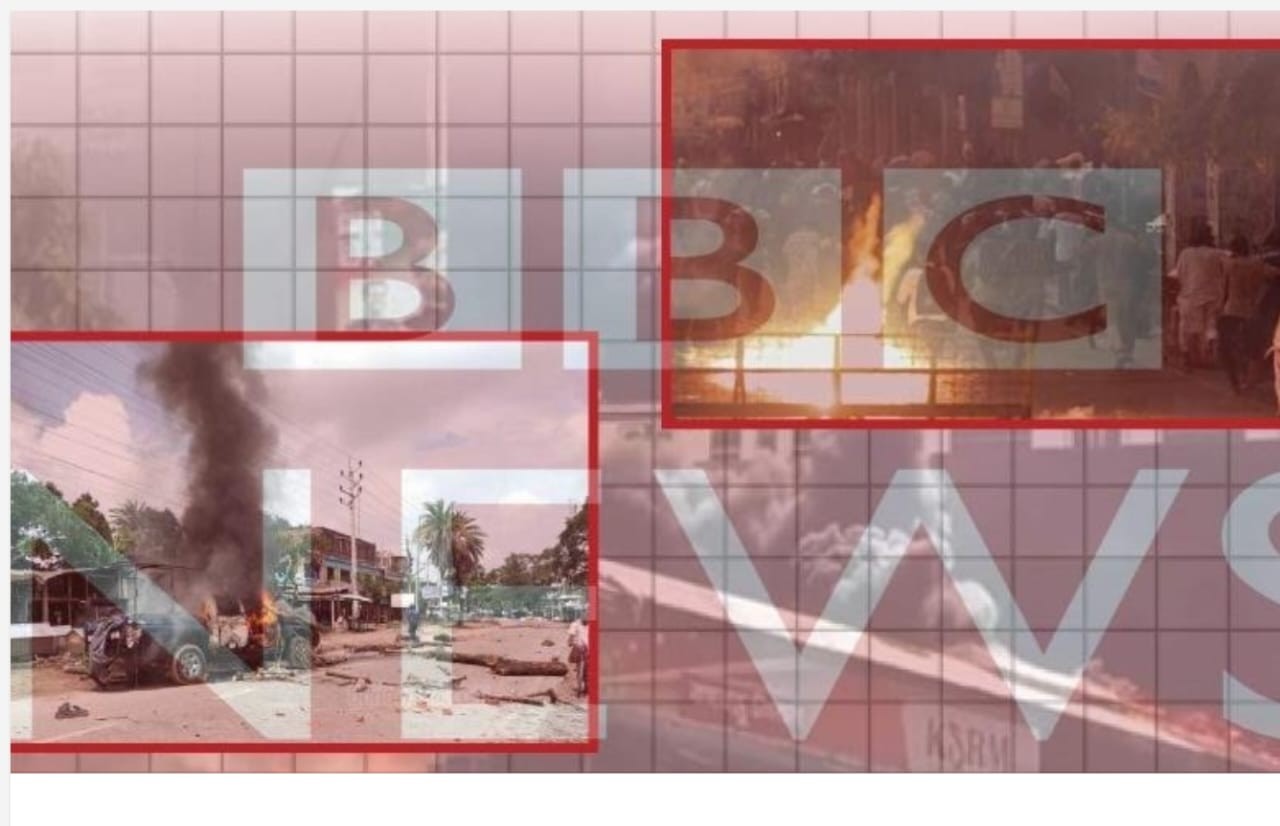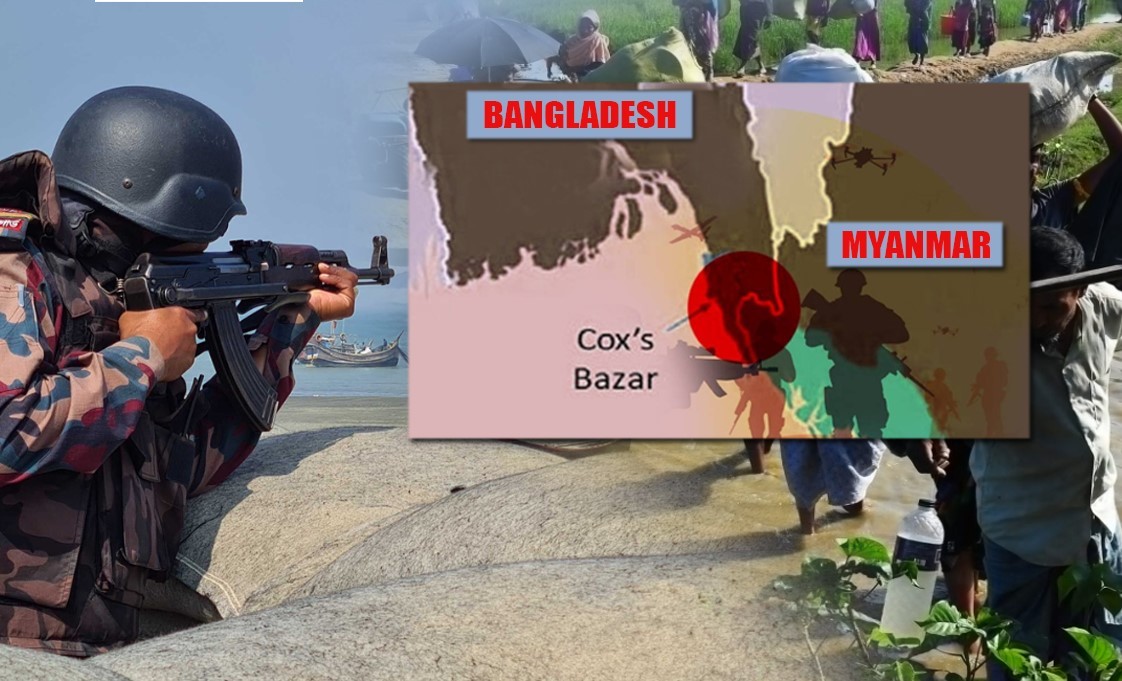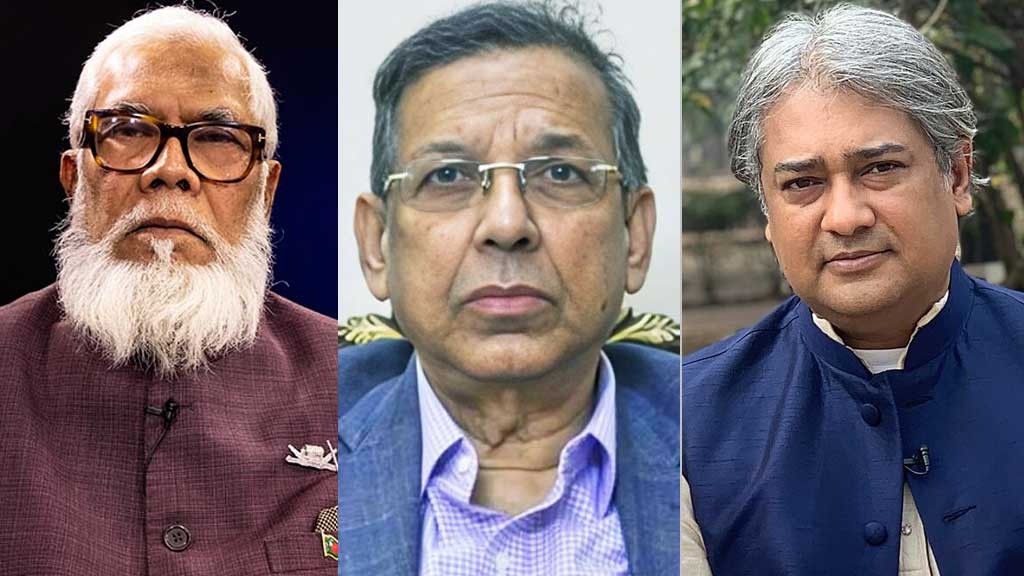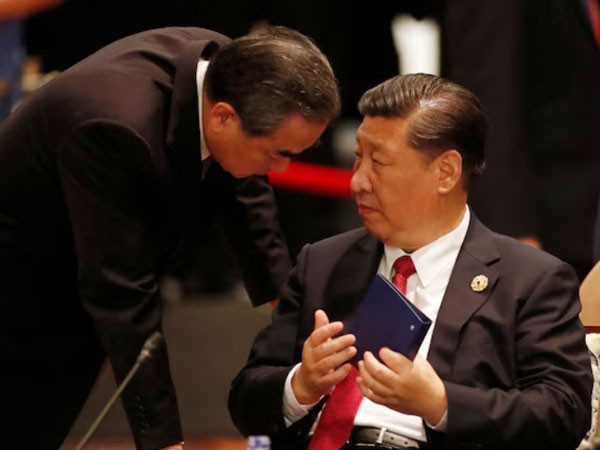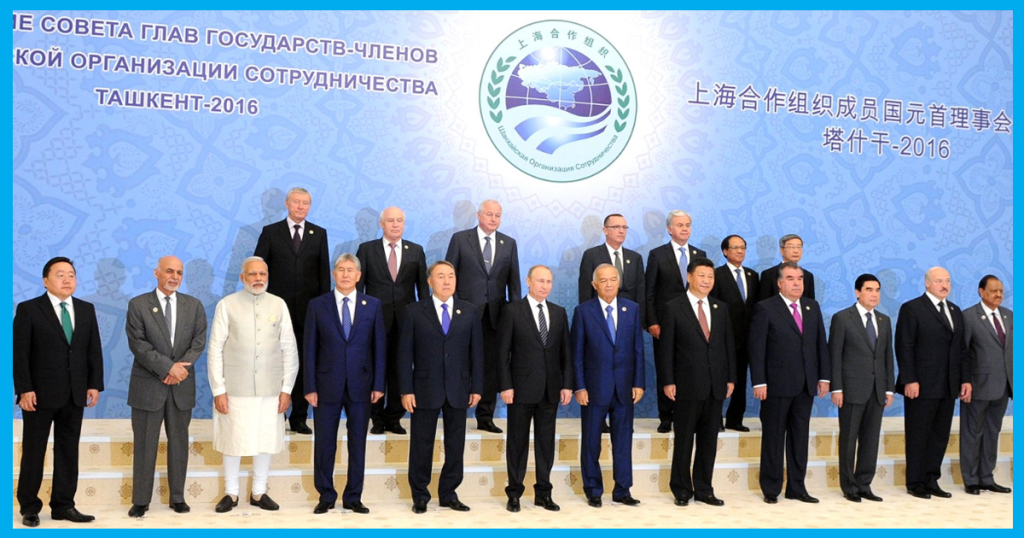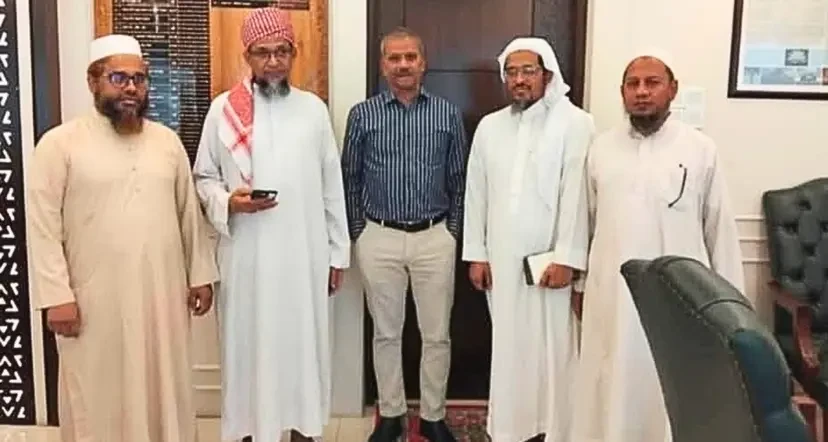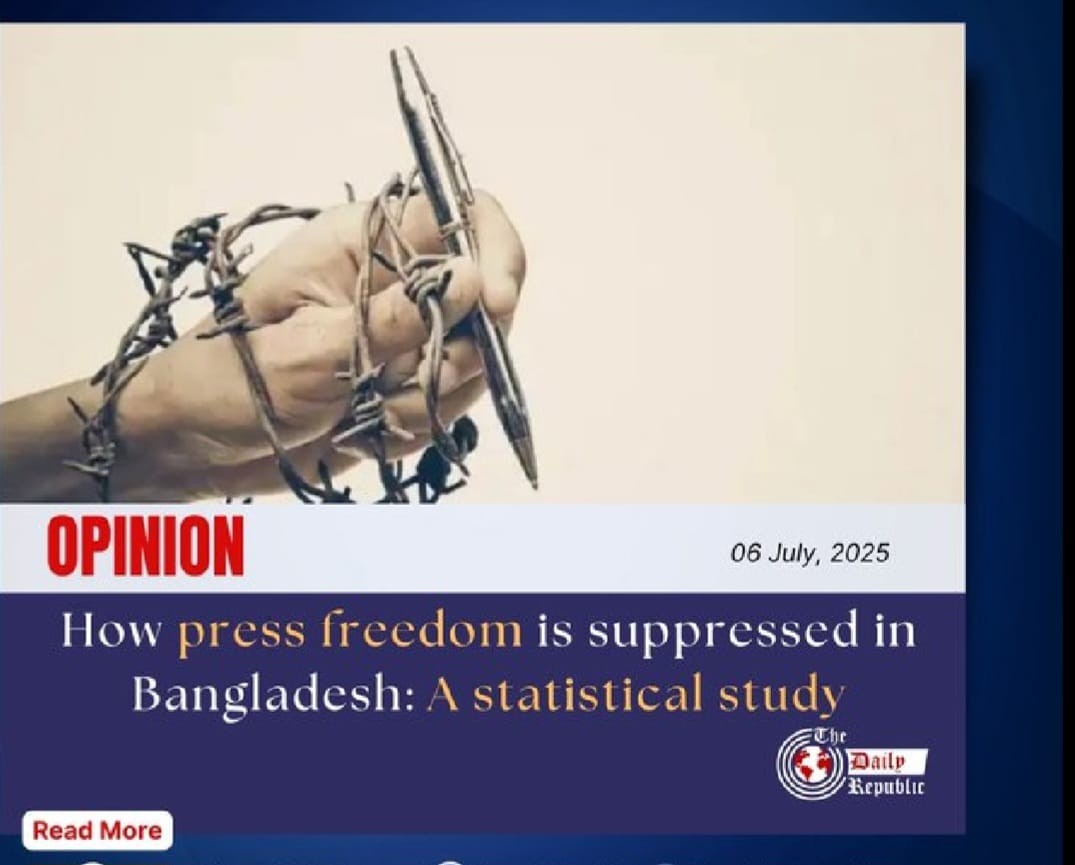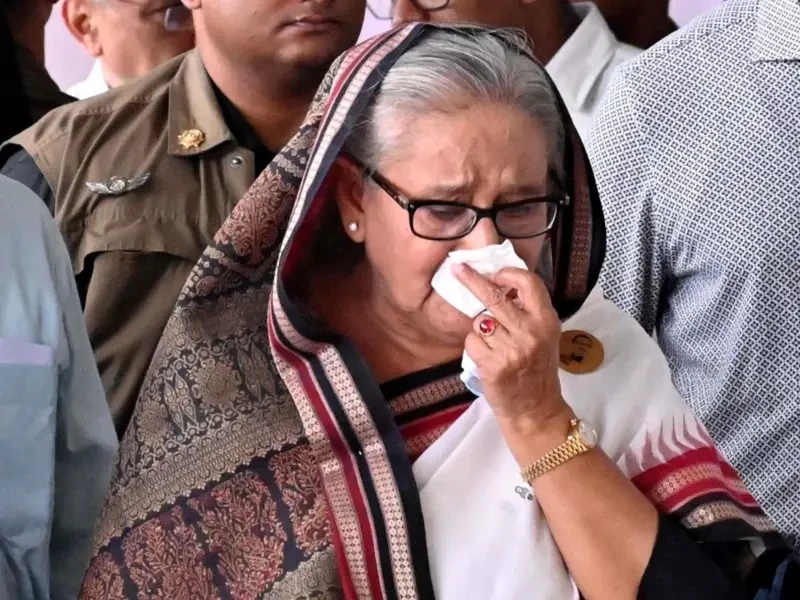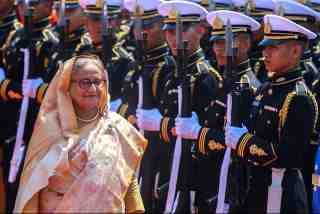BBC's journalistic standards failure— misattributing Sheikh Hasina’s 2016 Holey Artisan Bakery instructions propagated to 2024 protests.
A.
BBC
Misattribution
I.
Introduction
Thesis: BBC’s misrepresentation breaches key
journalistic standards—accuracy, context, source validation, and editorials
II.
Background
Summarize the 2016 Holey Artisan Bakery
attack and Sheikh Hasina’s response
Outline the 2024 radical students protests
and leaked audio
Explain BBC’s reported framing conflating the
two events
III.
Review of Journalistic Ethics and Standards
Definition of core principles: truth,
accuracy, verification, context, fairness, responsibility (e.g., BBC Editorial
Guidelines, SPJ Code)
Importance of separating historical context from
contemporary narrative
IV.
Analysis of BBC's Breach of Standards
A. Accuracy & Context Errors
Conflation without new evidence
Lack of clear timestamps and sourcing
B.
Verification & Sourcing Issues
Reliance on an undated audio; provenance
unclear
No corroborative evidence for same instruction
given in 2024
C.
Framing and Attribution Bias
Risk of inflating extremist threats via
emotional symbolism
Potential propagation of Islamophobic framing
Recommendations
for Media Accountability
BBC should accept responsibility and issue
formal correction.
BBC will have to provide full access to the
audio, timeline, metadata, and independent verification
BBC must clarify context in re-broadcasts and
future coverage
Weaknesses
of “The Battle for Bangladesh: Fall of Sheikh Hasina” – BBC’s 2024 report and
that was instruction/ solicitation of the Holey Artisan Bakery tragedy 2016 in
the context of radical extremism:
Weaknesses of the BBC Report: A Critical Study
While the BBC’s 2024 special report “The Battle
for Bangladesh: Fall of Sheikh Hasina” offers a powerful investigative lens
into authoritarian collapse, military intervention, and shifting power dynamics
in Bangladesh, the documentary is not without analytical, ethical, and
contextual flaws. The following weaknesses merit critical scrutiny:
1.
Symbolic Overreach and Misplaced Juxtaposition
The inclusion of the Holey Artisan Bakery
attack—a tragic event from 2016—functions as a potent emotional symbol, but
risks misleading audiences by blurring historical and contemporary boundaries.
While the 2016 incident was undeniably pivotal in Bangladesh’s counterterrorism
narrative, its invocation in the 2024 context, without substantial new evidence
of direct resurgence or structural continuity, might reinforce Islamophobic
tropes or serve as rhetorical amplification rather than analytical necessity. This
risks narrative inflation—where past trauma is mobilized to justify or
exaggerate present political conclusions.
2.
Framing Bias and Editorial Selectivity
The documentary, while evidentially rigorous on
the violence perpetrated during the 2024 crackdown, appears to underplay
competing perspectives, particularly those that challenge the legitimacy of the
so-called "interim government" or critically assess the power vacuum
exploited by elite networks such as those linked to Muhammad Yunus. There is
also minimal critique of Western diplomatic ambivalence or regional power
politics, which are crucial to understanding the geopolitical maneuvering
behind Hasina’s downfall. The focus on Islamist threats, thus, may
disproportionately serve the narrative of the interim administration while
sidelining democratic opposition, secular civil society, or the grassroots
voices victimized by both regimes.
3.
Overemphasis on Security Narrative
BBC’s report devotes significant space to the
"rise of radical Islamist groups", implicitly linking them with the
absence of Hasina’s government. However, it offers insufficient exploration of
structural socio-political factors, such as unemployment, disillusionment with
party politics, systemic poverty, or the failure of development models. This
reductionist approach—a common flaw in Western media coverage of the Global
South—frames events predominantly through a security lens, neglecting the
broader economic, ideological, and generational discontent that fuels
radicalism. Consequently, the audience receives a simplified causal chain:
Hasina ousted → extremism returns, without adequately unpacking systemic roots.
4. Lack
of Ground-Level Narratives
There is also a notable absence of grassroots
or survivor voices in the report. By privileging leaked elite communications,
Western diplomats, and security officials, the BBC neglects voices from
victims' families, student protesters, rural citizens, and minority
communities—those most affected by both state and non-state violence. The absence
of such testimonies weakens the authenticity of the narrative and creates an
epistemological gap that centers power while silencing vulnerability.
5.
Unresolved Ethical Ambiguities
The report’s use of leaked materials, including
alleged audio of Sheikh Hasina ordering a “shoot-to-kill” policy, while
journalistically justifiable, raises questions about evidentiary thresholds and
consent ethics. There is little disclosure about the provenance, verification
methods, or security risks surrounding such leaks, which may impact the
credibility of the findings under scrutiny. In the context of a politically
charged environment, ethical clarity becomes essential to preserve journalistic
integrity.
Rejoinder against BBC Bangla Report
Statement of Bangladesh Awami League Regarding
the False and Distorted Report About Honorable Prime Minister Sheikh Hasina
Broadcast by the BBC
Bangladesh
Awami League expresses deep concern over the unfortunate, unexpected, and
unimaginable broadcast of a false and distorted report concerning the Honorable
Prime Minister, daughter of Bangabandhu and Awami League President, Sheikh
Hasina, by an internationally reputed media outlet like the BBC—based solely on
a baseless 18-second so-called audio clip. This is something no one expects
from a globally respected news agency like the BBC.
Against the backdrop of ongoing human rights
violations in Bangladesh under the illegitimate, fascist regime of Yunus, the
BBC World Service recently aired a 35-minute report presented as part of an
investigative journalism piece. However, the report deliberately and
irrelevantly included an unverified audio clip allegedly involving Honorable
Prime Minister Sheikh Hasina, in which it is implied that she approved the use
of lethal force against protesters. The report lacks neutrality and objectivity
and clearly demonstrates bias, which directly contradicts the BBC’s own
journalistic standards.
This so-called audio clip has no identifiable
recipient. If the audio were genuine, there would have been a specific
recipient. This clip has been artificially generated using artificial
intelligence with the clear intent of defaming Sheikh Hasina, in collusion with
political opponents of the current government and the Awami League. Even the
forensic audio firm that the BBC claimed to have consulted could not confirm
its authenticity with full certainty. Moreover, the report fails to provide any
counter-narrative or perspective from the Honorable Prime Minister’s side.
The political history of Sheikh Hasina,
daughter of Bangabandhu, is one of democratic struggle and the defense of
people’s rights. That is why she is known as the Daughter of Democracy. She has
never engaged in the politics of conspiracy, dead bodies, or assassination. On
the contrary, she once voluntarily relinquished power. The core principle of
Sheikh Hasina’s politics is public welfare. The leader of the people, Sheikh
Hasina, would never issue such an order. In fact, during those protests, she
expressed concern over the lives of the students.
The report relies on information sourced from
law enforcement agencies and prosecutors known to be loyal to the regime, some
of whom have a past history of defending war criminals under the guise of
humanitarianism.
The people of Bangladesh are aware that,
following a High Court verdict in early July last year, students began a
movement demanding quota reform. Since the ruling came from the High Court, the
matter was under judicial jurisdiction. The government was carefully observing
the situation and considering the students’ demands. However, during this
period, both domestic and foreign anti-Bangladesh groups wove a web of
conspiracy around the movement. Plans were made to incite terror and
destruction under the guise of the protests. Pakistan-backed extremist communal
groups and terrorist networks began orchestrated violence across the country,
especially in the capital.
Intelligence sources indicated that these groups
planned coordinated attacks and arson on key national installations, government
buildings, and offices. Attacks on key infrastructure points (KIPs),
jailbreaks, assassinations, and the extraction of high-profile terrorists from
custody were planned—and eventually, many of these events did occur. These
extremist and terrorist groups essentially declared war on the state,
attempting to endanger the sovereignty of Bangladesh. The BBC report completely
ignores these realities.
Additionally, during the July–August protests,
attacks on police, over 450 police stations, looting of arms, jailbreaks, and
multiple fatalities occurred—all of which are left unmentioned in the BBC
report. Even after Sheikh Hasina left the country, the protests continued,
proving that attributing the violence solely to her directives is completely
illogical.
In one of BBC Bangla’s own video reports, a
leader of Hizb ut-Tahrir—an internationally designated terrorist
organization—admitted that they had infiltrated the protests in the guise of
general students. This supports Sheikh Hasina’s assertion that terrorist groups
were involved in the violence. Yet this fact is absent in the new report.
In conclusion, the BBC’s report, the selection
of a fabricated audio clip, and the biased presentation of information reflect
a clear intent and violate the core principles of independent journalism. The
illegitimate, fascist regime of Yunus has deliberately prepared this narrative
as a weapon to serve its political interests. We had hoped that a globally
respected institution like the BBC would not fall into the trap set by such
malicious forces. Sadly, this is not the case.
Joy Bangla
Joy
Bangabandhu
Long
live Bangladesh
Press
Release
Date:
9 July 2025
Question
and Straight cut reality about Report and reporter
BBC Bangla's
documentary is fully biased and Intentionally
1. Let me say at the beginning - it is very important for Yunus
Bahini to prove that Prime Minister Sheikh Hasina ordered the July murder.
Because a lot is happening around quickly, the environmental situation is
changing, so it is not possible to hang Sheikh Hasina. Therefore, Tajul Bahini
needs such evidence that it can show the people through a media trial that
Sheikh Hasina ordered the murder. Sheikh Hasina is the superior commander. It
is impossible to prove this in a righteous way. Therefore, the corrupt Yunus
followed a dark path through financial transactions and did the work through
the BBC. If you pay attention, you will see that BBC has said at the beginning
of their news - this call record is the biggest evidence so far in support of
the charges brought against Sheikh Hasina. Basically, this line was very much
needed by Tajul gang. And they got it through BBC. Let me also say this - the
media BBC is not an institution recognized by the International Crimes Tribunal
or recognized by the laws of Bangladesh. As a result, there is no need to give
a single penny of importance to what the BBC said or did about Sheikh Hasina.
Their claim has no minimum basis.
2. Tajul Islam, the controversial chief prosecutor of the
so-called International Crimes Tribunal, said - 'Sheikh Hasina's order to use
deadly weapons is just a trailer. Much is still to be done'. Stay tuned.
Usually, trailers are released for media promotion before movies or dramas. The
main drama or movie will come later. It is evident from Tajul's statement that
Prime Minister Sheikh Hasina has arranged a drama or movie about the alleged
trial. She is waiting for people's reactions after leaving the trailer. Tajul's
statement proves that Sheikh Hasina's alleged trial is an arranged drama whose
result has already been decided.
3. Sheikh Hasina has spoken about the use of deadly weapons.
There is no evidence to support Tajul's claim. However, as the chief prosecutor
of the tribunal, Sheikh Hasina is establishing before the trial that she
ordered the use of deadly weapons. The question arises whether he can make such
comments publicly on such a sensitive issue, whether he has the authority or
not. Here the stench of a media trial is being detected.
4. Before August 5, July a terrorist like Akbar Hossain was
associated with BBC News Bangla as a 'journalist'. After August 5, that Akbar
became the press minister of the occupying Yunus. That too, the press minister
of London. If he did not have love and affection for the occupying Yunus force,
he would not have joined Yunus's team. This means that Akbar Hossain was not
impartial while he was a BBC journalist. The producer of the BBC documentary is
more dangerous than Akbar. Before August 5, he himself wanted the fall of
Sheikh Hasina, cursed her, demanded her hanging, and made her profile red. The
BBC documentary was produced by that Rafid. And no sane person except a madman
and an idiot can expect an impartial investigation from that BBC Bangla.
5. Just looking at the language of the news published in BBC
Bangla, it is clear how purposeful the attack was. However, the attack was done
by a crude hand. The line by line of the news reflects the thinking of Dustbin
Shafiq and Tajul. At the beginning of the news, it says that Sheikh Hasina has
fled. Who is claiming that Sheikh Hasina has fled? The straight answer is, the
July terrorists led by Yunus. The word "fleeing" is commonly used in
Yunus's homegrown media. Sheikh Hasina has fled can be a statement by the
opponents of independence. It cannot be a statement by the media in any
situation. To come to the media, you have to come to specific information. The
international media cannot say that Sheikh Hasina has fled. To save the life of
the Prime Minister of Bangladesh from the attack of militant terrorists, Prime
Minister Sheikh Hasina was evacuated to a safe place by an army helicopter in
the presence of the army chief, air force chief and others, following state
protocol. How can being evacuated to a safe place by the state forces to save
her life be called fleeing? Can any civilized, educated journalist or media in
the world say such a thing? No. BBC said. Because they are serving the purpose
of the occupying Yunus force in exchange for money.
7. Again, in the entire news, BBC has addressed Prime Minister
Sheikh Hasina as 'Hasina Hasina' like a barbarian! Who says 'Hasina Hasina'?
The July terrorists say it. That is, here too, BBC is justifying the statements
of the July terrorists. The BBC is supposed to address 'Prime Minister Sheikh
Hasina' or 'Former Prime Minister Sheikh Hasina' (former in the terrorists'
terminology). Or they will write the full name 'Sheikh Hasina'. That means the
journalist who did the news was biased and evil and did the news. He did the
news out of his personal anger and resentment towards Sheikh Hasina. I will
prove that a little later.
8. Have you seen the names of those who did this so-called
investigative news of the BBC? If you haven't, check it out. Christopher Giles,
Riddhi Jha, #Rafidhossain and Tarequzzaman Shimul. Among them, note the name of
Rafid Hossain. Before August 5, this Rafid was a Red BadrThis Rafid was a
member of the July terrorists. Many of Rafid Hossain's posts against the Sheikh
Hasina government have already been spread. This Rafid himself wants the
hanging of Prime Minister Sheikh Hasina. And this Rafid himself has made news
and said that Sheikh Hasina has ordered the shooting. What a terrible
conspiracy they are hatching! How can a journalist who cannot tolerate Sheikh
Hasina, a journalist who wants Sheikh Hasina to be hanged, be impartial?
Dr. Akash Mazimder
and Proddut Kumar Sarker


